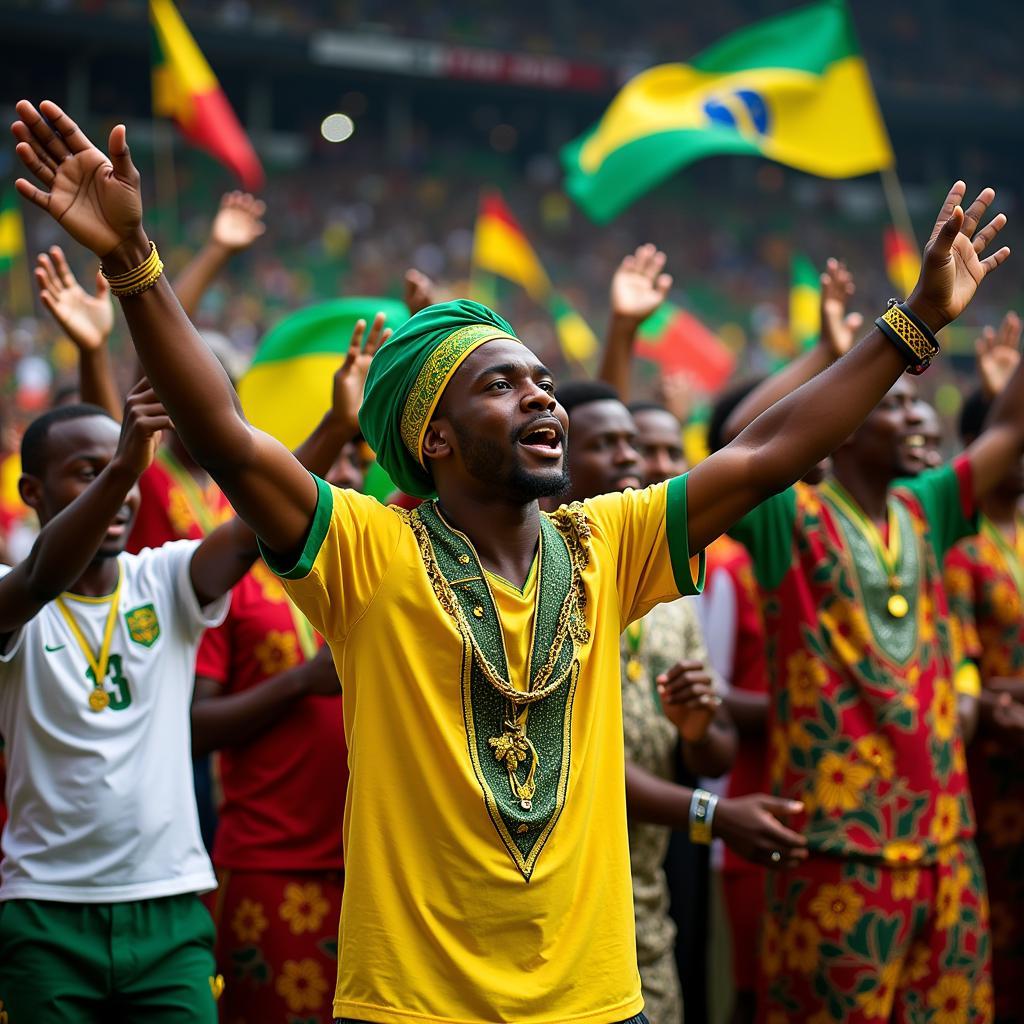The Intriguing World of African Pronouns: A Comprehensive Guide
African languages are renowned for their diversity and richness, with each language boasting a unique set of linguistic features. One aspect that fascinates language enthusiasts and scholars alike is the intricate system of pronouns used in these languages. Understanding African Pronouns offers a window into the cultural nuances, social structures, and grammatical complexities of the continent’s diverse linguistic landscape.
This guide delves into the fascinating world of African pronouns, exploring their various forms, functions, and cultural significance. We will unravel the intricacies of singular, plural, and dual pronouns, delve into the concept of gender and class distinctions in pronouns, and examine how pronoun usage reflects social hierarchies and power dynamics.
Unlocking the Secrets of African Pronouns: A Journey of Linguistic Exploration
African languages showcase a remarkable array of pronouns, often exceeding the simple subject-object distinctions found in many European languages. The complexity of African pronouns stems from the need to convey subtle nuances of social relationships, kinship ties, and respect for elders.
Beyond the Basics: Plural Pronouns and the Concept of Duality
One striking characteristic of African pronouns is the prevalence of plural pronouns, which go beyond the simple “we” and “you.” In many languages, there are distinct pronouns for “we (including you),” “we (excluding you),” and “you (plural),” highlighting the importance of group dynamics and social inclusion. The concept of duality also plays a significant role, with some languages using separate pronouns for “we (two of us)” and “we (more than two of us).”
Professor Amani N’Diaye, a renowned linguist specializing in African languages, emphasizes the importance of these distinctions: “African pronouns are not merely grammatical markers; they are social signifiers that reveal deep cultural values and social structures.”
Gender, Class, and the Power of Pronouns
African pronouns often reflect nuanced distinctions in gender, class, and social status. For instance, in some languages, pronouns change based on the speaker’s relationship to the person being addressed. This can be seen in the use of honorific pronouns for elders, chiefs, or other respected figures, demonstrating the importance of social hierarchy and deference.
The Language of Respect: Honorifics and Social Hierarchy
The use of honorific pronouns is particularly prominent in languages with hierarchical social structures. For instance, in some cultures, younger individuals address older people using specific pronouns that reflect their age and status. These distinctions are not merely grammatical rules but cultural expressions of respect, deference, and social harmony.
The Cultural Tapestry of African Pronouns: A Reflection of Identity and Values
African pronouns provide valuable insights into the unique cultural identities of the continent’s diverse ethnic groups. By understanding the intricate system of pronouns in a specific language, we gain a deeper appreciation for the social values, beliefs, and cultural nuances that underpin its use.
Pronouns as Portals to Cultural Understanding
The study of African pronouns allows us to understand how language shapes cultural practices and social interactions. For example, the use of plural pronouns in certain contexts reflects the importance of community and collective identity. In some cultures, the inclusion of others in the plural form of “we” highlights the strong sense of community and shared responsibility.
Dr. Aminata Sarr, a renowned anthropologist specializing in African cultural studies, highlights the significance of pronouns in cultural identity: “Pronouns are not just words; they are the building blocks of our social identities, conveying our relationships, respect, and place in the world.”
Unlocking the Power of African Pronouns: A Linguistic Adventure
The world of African pronouns is a captivating linguistic journey, offering a glimpse into the rich tapestry of cultures, traditions, and social dynamics across the continent. By delving into the nuances of pronoun usage, we gain a profound appreciation for the diverse and complex linguistic landscapes that make Africa such a vibrant and fascinating place.
Embrace the linguistic journey of African pronouns, and you’ll discover a whole new world of meaning and understanding.
FAQs:
- What are some of the most common features of African pronouns? Many African languages utilize distinct pronouns for singular, plural, and dual forms, as well as honorific pronouns to reflect social status and respect.
- How do African pronouns reflect cultural values? The use of plural pronouns, honorifics, and distinctions in pronoun usage based on kinship ties reveal the importance of community, social hierarchy, and respect in African cultures.
- Why is it important to study African pronouns? Understanding African pronouns helps us understand the intricacies of language and its connection to culture, social structures, and identity.
Learn More About the Fascinating World of African Pronouns
This article has only scratched the surface of the fascinating world of African pronouns. To explore further, consider delving into the specific languages of different African communities. You can also find numerous resources online and in academic journals that delve into the intricacies of African linguistics.
By engaging with the vibrant world of African pronouns, you will unlock a deeper understanding of the continent’s rich linguistic heritage and cultural diversity.
